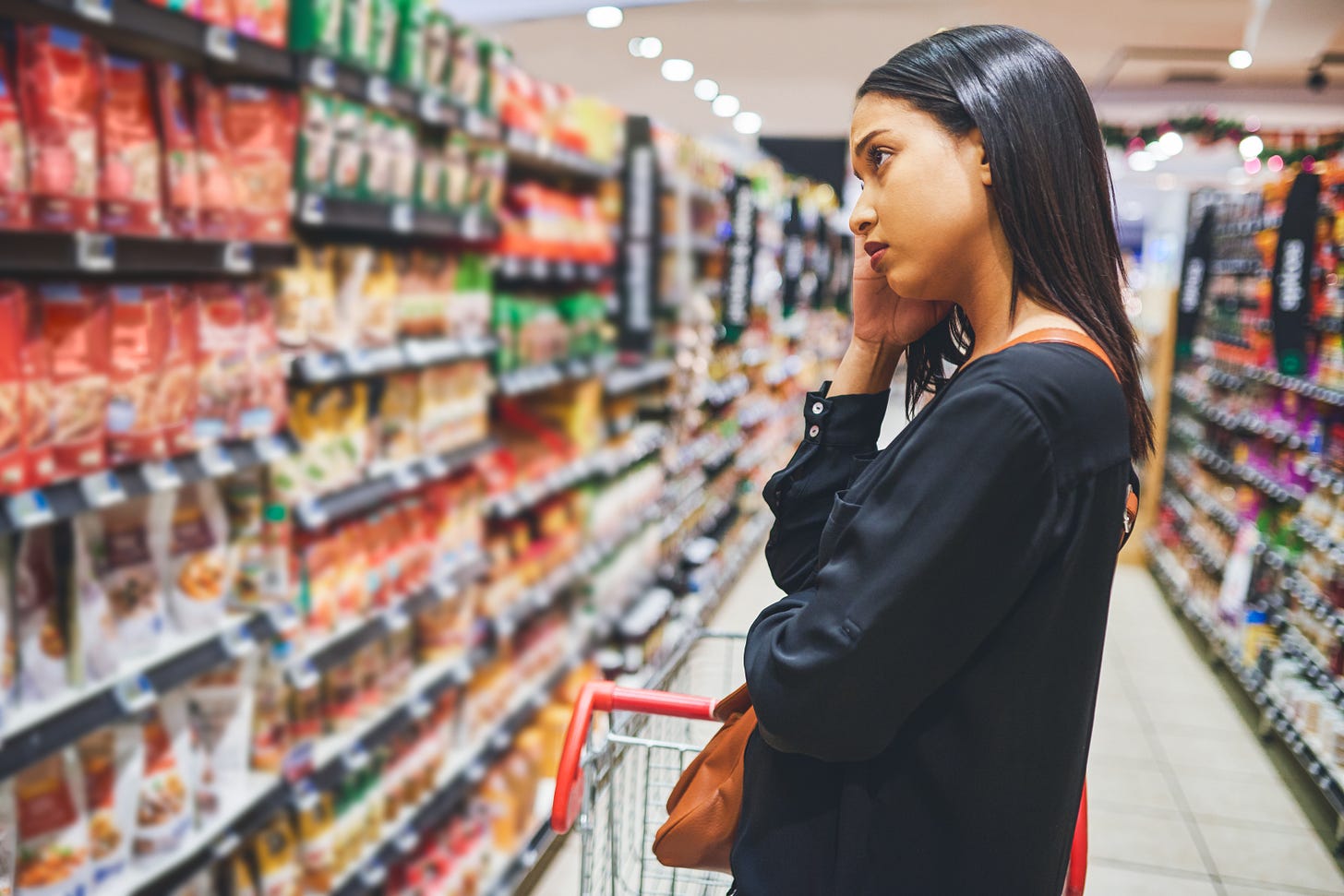A cure for high grocery prices
Plus: concerns about Substack and what Americans are most wrong about

With Donald Trump talking about “federalizing” DC in order to fight crime in the nation’s capital, I think it’s a good time to point out that a huge share of the city’s criminal justice system is already under federal control. That starts with the US attorney’s office, which, unlike a normal federal prosecutor’s office, also does the job of a district attorney and prosecutes local crimes.
More significantly, the basic local trial court — the DC Superior Court — is technically a federal court whose members need to be confirmed by the Senate.
Senate majority leaders, understandably, are normally not that fired up about local trial courts in DC, and they don’t like to spend floor time on these confirmations. But that means we have a ton of vacancies — 13 out of 62 Superior Court judgeships are currently vacant. When your courts are understaffed by 20 percent, it’s hard to actually try people in a timely manner, especially for offenses that didn’t lead to death or serious injury. The federal government also runs pretrial supervision for people who’ve been arrested and are awaiting their day in court. And the agencies doing this are doing a terrible job:
The Court Services and Offender Supervision Agency had drawn Henderson’s scorn because, according to the office’s 2023 budget documents, it had 2,120 offenders on “maximum supervision level” but only 490 outfitted with GPS monitors. The Pretrial Services Agency, meanwhile, was in her sights after a recent debate about the pretrial release of a man accused of shooting 26 rounds from an AR-15 at a car. In a legal filing opposing the move, prosecutors wrote that, “while GPS monitoring by the vendor may be in real time, PSA’s monitoring of defendants is not. PSA only works during normal business hours. Therefore, PSA only finds out about violations that occur at night or on weekends after the fact.”
None of this is Donald Trump’s fault, but it is genuinely within his power to fix it. If he wants to make the city safer (and I certainly want it to be safer — it’s good that crime has fallen the past two years but it’s still very high), he should use the powers already at his disposal.
Now for today’s questions.
lwdlyndale: People seem to get really mad about grocery prices these days, what’s the Yglesias “Food Abundance” agenda?
I’m a little surprised you don’t hear more about this, because food really is an area where there are a lot of potential policy levers.
Trump’s tariffs on imported food, imported fertilizer, and imported farm equipment, for example, are going to push up food prices. But beyond Trump specifically, a lot of ag sector protectionism is worth a second look. I don’t think there’s good evidence for the MAHA contention that using high-fructose corn syrup rather than cane sugar has negative health consequences. But it’s definitely true that HFCS is widely used in part because the US sugar quota system in effect rations the amount of cane sugar that’s available in the country. Eliminating those quotas would have many benefits:
Cheaper cane sugar would put downward pressure on the price of all sweeteners.
Reduced demand for HFCS would free up more cropland for growing other food.
Higher earnings for sugar-growing countries in Latin America would ultimately mean better markets for American exports of planes and cars and other finished goods.
But an even bigger example is the widespread use of corn-based ethanol as a fuel additive. This came together as a policy back in the days when the US was a huge oil importer and there was a lot of interest in energy independence. It also attracted a bit of an environmental gloss on the theory that burning ethanol is cleaner than burning gasoline. I interviewed Michael Grunwald recently, though, and the major theme of his new book is that the biggest emissions impact of agriculture is land use and deforestation. Using huge swathes of land to grow corn that is turned into ethanol is, in practice, worse for the environment than drilling for oil. And in terms of the power produced, it requires much more land than solar panels.
Part of the mechanism by which corn ethanol increases agricultural land use is that it drives up the global price of corn and, through partial substitutability, the price of other staple grains as well. This used to be considered an untouchable policy because of Iowa’s swing state status. But Iowa is no longer a swing state, and with food prices hot on the political agenda, I think someone should take it on. It’s a good issue for a progressive to champion, but also something that real free market ideologues have always opposed, and you could probably find some Republican partners.
Evan M: Even if you set aside the Nazi problem, how well is Substack serving your business?
I’ve been reading a lot of commentary recently about Substack being overpriced and building their brand at the expense of writers… and also predicting more enshittification and perhaps a crash as investors insist they justify their $1B valuation by more growth hacking a la Meta.
Keep reading with a 7-day free trial
Subscribe to Slow Boring to keep reading this post and get 7 days of free access to the full post archives.

